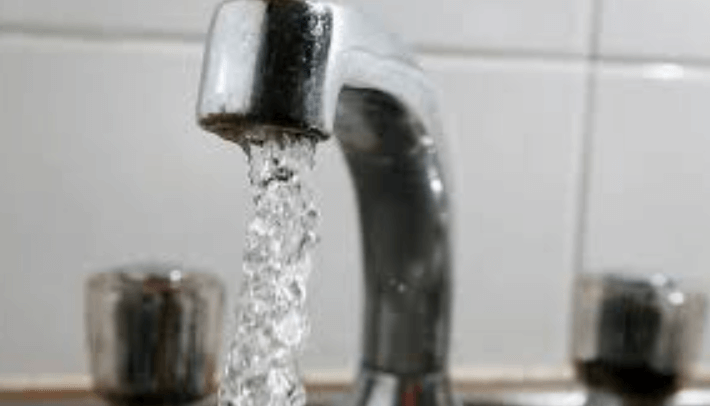
The Value of Investing in a Rinnai Hot Water System
A Rinnai hot water system is a type of water heater that uses a heat exchanger to transfer heat from the exhaust of an external combustion engine, such as a gas or propane tank, to the water in the tank. This type of hot water system is popular in residential homes and businesses due to its efficiency and long-term reliability.
When using a Rinnai hot water system, heated air passes through a heat exchanger which transfers the energy from the exhaust into heated water stored in an insulated tank. As with other types of tanks, insulation helps keep the temperature inside consistent so that it can be used for various purposes such as dishwashing or taking baths. The tank also helps prevent scale buildup since it acts as a barrier between your pipes and hard minerals found in some natural sources of drinking water.
Rinnai systems are more efficient than standard electric or gas-fired units because they use less energy when heating up large amounts of hot water over time. The best part is that you get all this efficiency without having to sacrifice comfort since these systems come with built-in temperature controls which allow you to adjust your desired level of warmth whenever you need it. Additionally, most models have advanced safety features like auto shut offs and pressure relief valves
The Benefits of Automation Technologies
In today’s world, automation technologies are increasingly becoming a staple in many businesses. Automation technologies offer a number of benefits that can help businesses become more efficient, save costs, and make installation and maintenance easier. Let’s take a closer look at the three major benefits of automation technologies: cost savings, increased efficiency, and easy installation and maintenance.
- Cost Savings: One of the biggest advantages of automation technologies is cost savings. Automation solutions can help streamline processes and reduce manual labor costs; they also provide greater scalability than manual processes do. This means that you can scale up or down your operations quickly as needed without needing to invest in additional manpower or resources—a huge cost-saver for business owners! Additionally, automated solutions require less energy than manual operations do; this means you’ll be able to reduce your electricity bill as well.
- Increased Efficiency: Automated systems are much faster than their manual counterparts; this means that tasks which may have taken hours or days now only take minutes or even seconds to complete! This increases overall efficiency in the workplace—allowing employees to focus on more important work rather than mundane tasks. Additionally, automated systems tend to be more reliable than their human counterparts; machines.
Types of Rinnai Hot Water Systems
Rinnai hot water systems are the most reliable and efficient on the market, with a variety of options to suit your needs. Whether you’re looking for an electric storage system for your home or a gas continuous flow system for commercial applications, Rinnai has you covered.
- Electric Storage Systems
Electric storage systems are ideal for small households as they provide quick access to hot water when needed. These systems work by heating up cold water that is stored in an insulated tank and then delivering it through pipes to the taps or showers in your home. Electric storage systems are energy efficient and cost effective, as they only heat up the water when it is needed, meaning you don’t have to waste electricity keeping a tank warm all day long. The tanks come in various sizes, so whether you need a small unit suitable for one person or a large one suitable for multiple people, there will be something that fits your needs perfectly.
- Gas Continuous Flow Systems
Gas continuous flow systems are perfect if you need lots of hot water on demand and don’t want to wait around while it heats up in an electric storage system. These units take cold mains water and heat it instantly using either natural gas or LPG (liquid petroleum gas)
How a Rinnai Hot Water System Works
A Rinnai hot water system is a great way to get reliable, on-demand hot water. It produces hot water quickly and efficiently, and is one of the most popular hot water systems available. But how does it work? Let’s take a look at the two main processes involved: the pre-heat cycle and heat exchange process.
The pre-heat cycle begins with cold water being supplied from your home’s main line. This cold water enters the unit, where it is heated by an electric element in the storage tank before exiting as hot water through your taps or showerhead. This preheating helps to ensure that you get instant hot water when you need it, without having to wait for it to warm up first.
Once all of the stored hot water has been used up, a new heat exchange process begins in order to replenish it. The heat generated by this process comes from either natural gas or LPG which flows into a combustion chamber inside the unit where it is ignited by an electric sparker. The flames then circulate around a heat exchanger which transfers some of their energy into oncoming cold mains pressure tap water before leaving as exhaust fumes out of an external flue outlet pipe or wall vent outside your home.
Installation Considerations for Home Appliances
When it comes to selecting a new home appliance, there are various installation considerations that need to be taken into account. From size and location of the unit, to existing gas or power connection requirements, water pressure requirements and ventilation requirements; these components must all be considered before installation. Safety features are also an important factor in the purchase. Here we provide an overview of each consideration so you can make informed decisions when shopping for your next appliance.
- Size and Location of the Unit: The size of the unit is a key factor in determining where it will go in your home. For example, if you’re buying a refrigerator, make sure that there’s enough room in your kitchen for it to fit comfortably as well as enough space around it so that air can circulate properly behind the unit. Additionally consider other factors such as whether or not you have access to power outlets nearby or if any doorways need widening to fit through during delivery and installation.
- Existing Gas or Power Connection Requirements: If you’re purchasing an appliance that requires gas or electricity connections then check beforehand what type of connection is needed (3-prong plug etc). It may also prove necessary for a professional electrician or
Conclusion
The Rinnai hot water system is a great choice for anyone looking for an efficient and reliable way to heat their home’s water. It is easy to install, has a low operating cost and provides consistent hot water. The Rinnai hot water system also has some additional features that make it even more attractive, such as being energy-efficient and having multiple temperature settings. With its superior performance and durability, the Rinnai hot water system is the perfect choice to provide your home with an endless supply of hot water.

